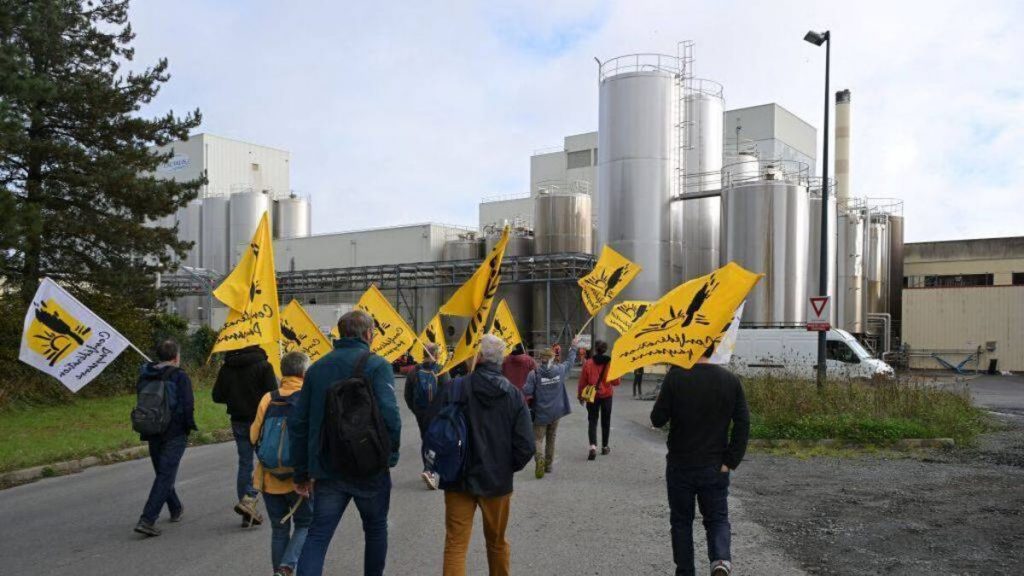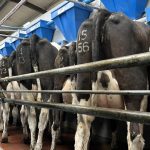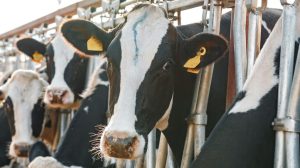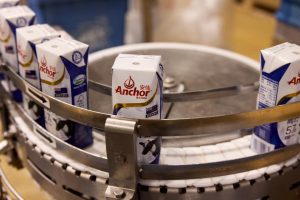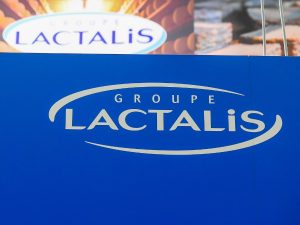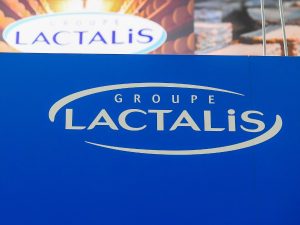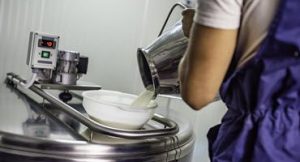
Based in the northwest of France, Lactalis tried to soften the blow for farmers in its home country by saying that reducing the production of bulk commodities like milk powders will lead to better farm gate prices for milk.
Supplying the world’s largest dairy company has turned into a nightmare for hundreds of farmers across Europe.
Lactalis has announced plans to cut the amount of milk it collects annually by 450 million litres, or nearly 9% of its overall volume of 5.1 billion litres in France.
Meanwhile, in Scotland, Lactalis has served a year’s notice to 12 of its farmer suppliers to find a new processor to take their milk.
There is similar treatment for 270 French farmers who will see their milk contracts stopped in 2026, but other affected French farmers will have until 2030 to find new buyers for their milk. The affected farmers are in two areas of France where the density of suppliers is lower, which makes milk collection more expensive.
The family-owned processor, which has been one of the biggest in the world for decades, made the hard-headed decision to throw some of its dairy farmer suppliers overboard, mainly because it wants to concentrate on more profitable consumer products like cheese and yoghurts, while moving away from bulk ingredients such as non-fat dry milk (NFDM) which it has to export onto world markets where countries like New Zealand provide stiff competition.
Based in the northwest of France, Lactalis tried to soften the blow for farmers in its home country by saying that reducing the production of bulk commodities like milk powders will lead to better farm gate prices for milk.
However, the union of French dairy farmers, FNPL, said: “That Lactalis dumps its loyal suppliers is unacceptable and unworthy of the market leader. We have one simple question, how can dairy farmers in our country still have confidence that their milk will be collected?” The national farmers organisation, FNSEA, said, “This is a betrayal of our farmers; if you supply milk to the largest processor in the world, you should be able to trust that you’re safe”.
In 2023, Lactalis became the first dairy company worldwide to do more than $30bn of business annually.
This followed several years of significant revenue growth by the company, up $10bn in just four years, due mainly to organic growth and acquisitions. Today, Lactalis has 270 production sites in 51 countries, and is frequently accused by French farmers during difficult milk price negotiations, of preferring cheaper milk from overseas.
Lactalis, privately controlled by the Besnier family, declared a net profit of €428m (1.45% of sales) last year, compared to €384m in 2022.
So, its plan to process almost 9% less French milk was badly received by French dairy farmers. However, it didn’t come entirely without warning; owner and CEO Emmanuel Besnier had warmed of cuts in April.
A Lactalis spokesperson linked the decision to stiff global competition in bulk ingredient markets and declining demand from China (even before feared retaliation against the EU’s new tariffs of up to 35% on imported Chinese electric vehicles).
These trends have led EU milk processors to reduce NFDM production by about 4%. An even bigger cut is expected in 2025 as export prospects worsen. The EU’s main NFDM exporters are France, Belgium, Germany, the Netherlands, Ireland, and Poland.
Domestic consumption of NFDM in the EU is mainly for UHT milk, yogurts, cheeses, chocolate, bakery goods, and calf feed. Reduced demand from the feed sector, as animal numbers decline, is having an effect, and the EU market may also come under pressure from the free trade deal with New Zealand agreeing up to 15,000 tonnes of NFDM at a 20% import duty.
Separate from its dismissal of French suppliers, Lactalis has followed a business review of its milk supply in southwest Scotland by serving notice to 12 dairy farmers.
The company has manufacturing sites in Stranraer (Scotland), Aberystwyth (Wales) and Lubborn (England). Now, ten farmers in Dumfries and Galloway and two in Ayrshire, all suppliers to Stranraer, are to lose out.
With Tesco also reducing its Scottish milk suppliers, Andrew Connon, vice-president of the NFU Scotland farmers group, said: “Once again, it appears as though producers are to be dumped out of their current contract without clear reasoning and with few options to find alternatives in the current market”.
“Why would anyone push to keep up with multi-decade investments when confidence in contracts only extends to 12 months?” he asked.
You can now read the most important #news on #eDairyNews #Whatsapp channels!!!
🇺🇸 eDairy News INGLÊS: https://whatsapp.com/channel/0029VaKsjzGDTkJyIN6hcP1K
